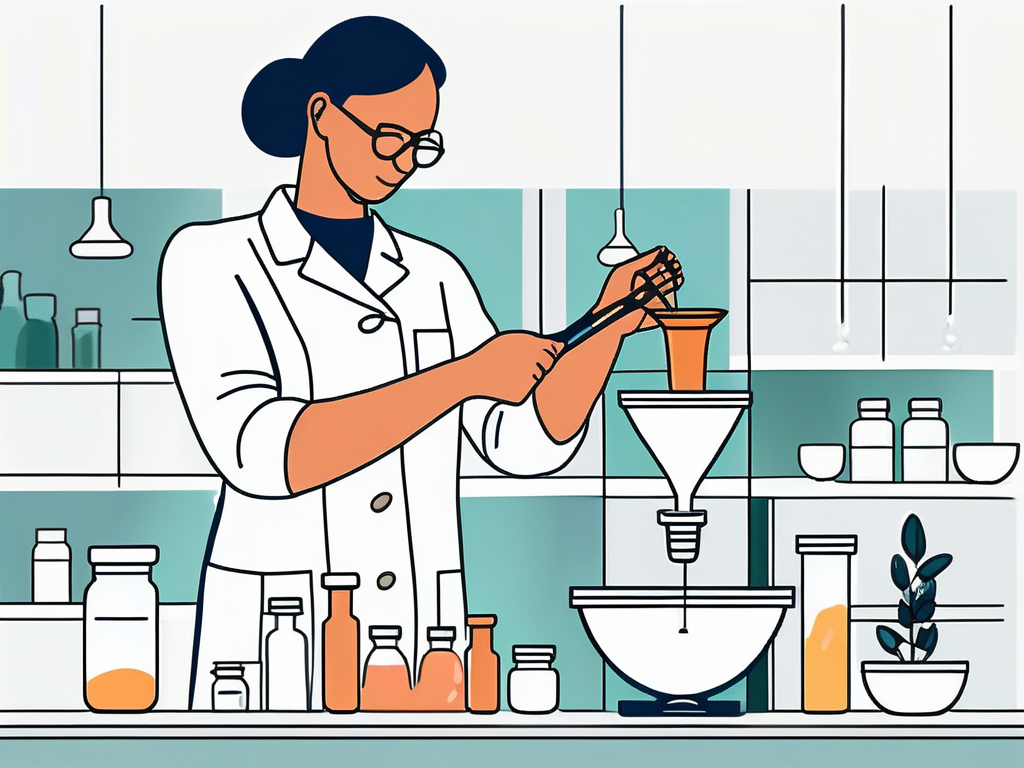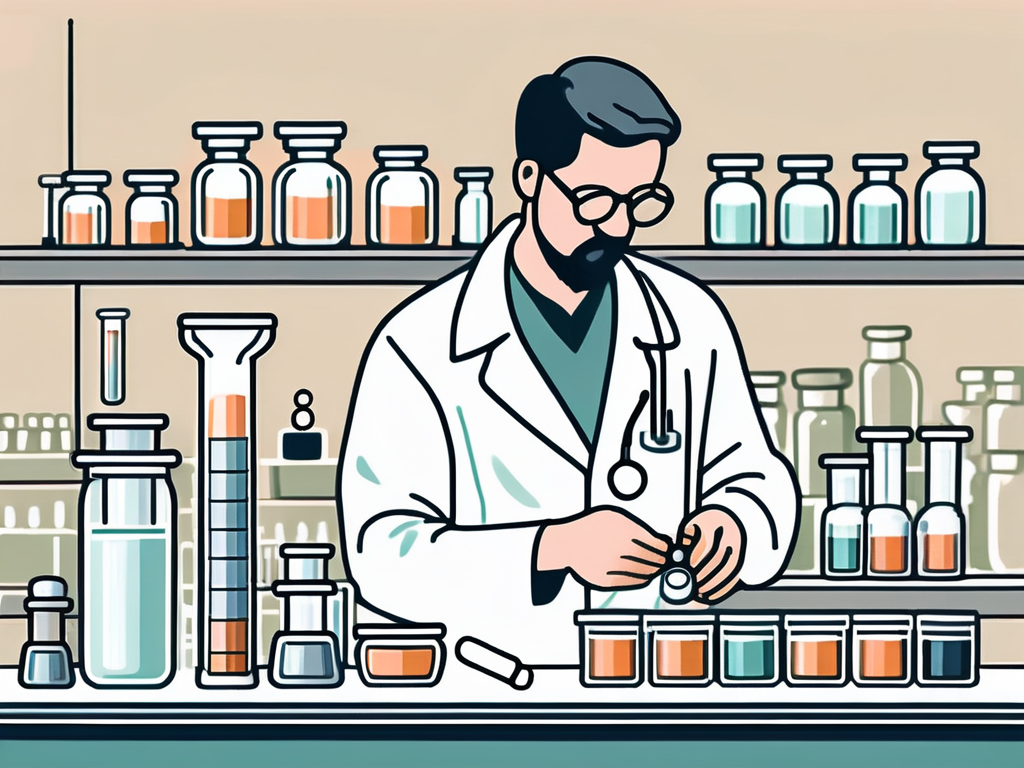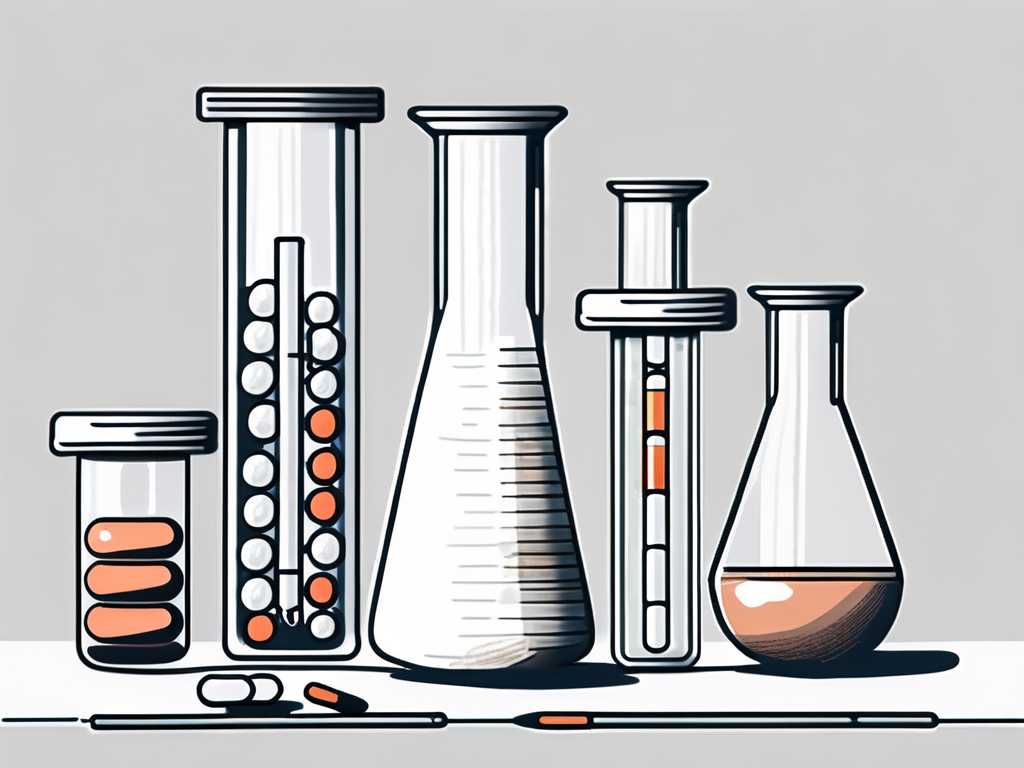In the world of pharmacy, extemporaneous compounding is a term that refers to the process of preparing medications to meet the unique needs of individual patients. This is a practice that dates back to the origins of pharmacy itself, when all medications were prepared by hand according to the specific needs of the patient. Today, while most medications are mass-produced by pharmaceutical companies, there is still a need for extemporaneous compounding in certain situations.
Compounding pharmacies are the places where this important work takes place. These specialized pharmacies have the equipment and expertise necessary to prepare custom medications according to a doctor’s specifications. This article will delve into the details of extemporaneous compounding and compounding pharmacies, explaining what they are, how they work, and why they are still an essential part of modern healthcare.
What is Extemporaneous Compounding?
Extemporaneous compounding is the process of preparing medications to meet the unique needs of individual patients. This might involve altering the dosage, changing the form of the medication (for example, from a pill to a liquid), removing certain ingredients due to allergies or sensitivities, or combining multiple medications into a single dosage form.
Extemporaneous compounding is a highly skilled practice that requires a deep understanding of pharmacology, chemistry, and the specific needs of the patient. It is a practice that is regulated by both state and federal laws, and compounding pharmacists must meet strict standards of training and certification.
The History of Extemporaneous Compounding
The practice of extemporaneous compounding dates back to the earliest days of medicine, when all medications were prepared by hand. In fact, the word “pharmacy” comes from the Greek word “pharmakeia,” which means “to prepare drugs.” It wasn’t until the 19th and 20th centuries, with the advent of industrialization and mass production, that the practice of compounding began to decline.
However, even as mass-produced medications became the norm, there was still a need for custom-made medications in certain situations. Today, extemporaneous compounding is a specialized field within pharmacy that continues to serve an important role in patient care.
The Role of Extemporaneous Compounding in Modern Healthcare
While the majority of medications today are mass-produced, there are still many situations where extemporaneous compounding is necessary. For example, a patient might have an allergy or sensitivity to a certain ingredient in a mass-produced medication, requiring a custom-made alternative. Or, a patient might need a medication in a different form, such as a liquid instead of a pill, due to difficulty swallowing.
Extemporaneous compounding also plays a crucial role in pediatric and geriatric care, where patients often have unique medication needs. For example, a child might need a lower dosage of a medication that is only available in adult dosages, or an elderly patient might need a medication in a form that is easier to swallow or absorb.
What is a Compounding Pharmacy?
A compounding pharmacy is a specialized pharmacy where extemporaneous compounding takes place. These pharmacies have the equipment and expertise necessary to prepare custom medications according to a doctor’s specifications. This might involve altering the dosage, changing the form of the medication, removing certain ingredients, or combining multiple medications into a single dosage form.
Compounding pharmacies are regulated by both state and federal laws, and must meet strict standards of training and certification. They are also subject to regular inspections to ensure that they are maintaining the highest standards of quality and safety.
The Role of the Compounding Pharmacist
The compounding pharmacist is a highly skilled professional who plays a crucial role in patient care. They work closely with doctors and other healthcare providers to prepare custom medications that meet the unique needs of each patient. This requires a deep understanding of pharmacology, chemistry, and the specific needs of the patient.
Compounding pharmacists must also have a thorough understanding of the laws and regulations that govern their practice. This includes both state and federal laws, as well as the standards set by professional organizations such as the United States Pharmacopeia (USP).
The Equipment and Techniques Used in a Compounding Pharmacy
Compounding pharmacies are equipped with specialized equipment that allows them to prepare custom medications. This might include equipment for measuring and mixing ingredients, molding medications into different forms, and testing the finished product for quality and safety.
The techniques used in a compounding pharmacy are also specialized and require a high level of skill and precision. For example, a compounding pharmacist might need to use a technique called trituration to finely grind and mix ingredients, or they might need to use a technique called levigation to create a smooth, uniform mixture.
The Process of Extemporaneous Compounding
The process of extemporaneous compounding begins with a prescription from a doctor. The prescription will specify the medication, the dosage, the form of the medication, and any special instructions. The compounding pharmacist will then use their skills and expertise to prepare the medication according to these specifications.

The process of preparing the medication involves several steps. First, the pharmacist will calculate the correct dosage and measure out the necessary ingredients. They will then mix the ingredients together using specialized techniques and equipment. Once the medication is prepared, it will be tested for quality and safety before being dispensed to the patient.
Calculating the Dosage
The first step in the compounding process is to calculate the correct dosage. This is a crucial step, as the dosage must be precise to ensure the medication is effective and safe. The pharmacist will use their knowledge of pharmacology and mathematics to calculate the dosage based on the doctor’s prescription and the specific needs of the patient.
Once the dosage is calculated, the pharmacist will measure out the necessary ingredients. This requires a high level of precision, as even a small error can have serious consequences. The pharmacist will use specialized equipment, such as precision scales and measuring devices, to ensure the ingredients are measured accurately.
Mixing the Ingredients
Once the ingredients are measured, the next step is to mix them together. This is done using specialized techniques and equipment, such as a mortar and pestle for grinding and mixing solid ingredients, or a levigator for creating a smooth, uniform mixture.
The goal of this step is to create a medication that is uniform in composition and texture. This ensures that each dose of the medication contains the correct amount of each ingredient, and that the medication is easy to administer and absorb.
Testing the Finished Product
Once the medication is prepared, the final step is to test it for quality and safety. This might involve testing the medication for uniformity, potency, and purity. The pharmacist will use specialized equipment and techniques to conduct these tests, and will document the results for quality assurance purposes.
If the medication passes all tests, it is then dispensed to the patient along with instructions for use. The pharmacist will also provide counseling to the patient, explaining how to take the medication, what to expect, and any potential side effects or interactions.
The Importance of Extemporaneous Compounding
Extemporaneous compounding plays a crucial role in modern healthcare. It allows for the preparation of custom medications that meet the unique needs of individual patients, filling a gap that cannot be met by mass-produced medications. This is particularly important for patients with allergies or sensitivities, patients who need a medication in a different form, and patients who require a dosage that is not available commercially.

Compounding pharmacies and compounding pharmacists are the backbone of this important practice. They have the skills, expertise, and equipment necessary to prepare custom medications to the highest standards of quality and safety. They work closely with doctors and other healthcare providers to ensure that each patient receives the medication they need in the form that is best for them.
Extemporaneous Compounding and Patient Care
Extemporaneous compounding is a crucial part of patient care. It allows doctors to prescribe medications that are tailored to the specific needs of each patient, improving the effectiveness of treatment and reducing the risk of side effects and adverse reactions.
Compounding pharmacists play a crucial role in this process. They work closely with doctors to understand the needs of each patient and to prepare medications that meet these needs. They also provide counseling to patients, explaining how to take the medication, what to expect, and any potential side effects or interactions.
Extemporaneous Compounding and the Future of Pharmacy
While the majority of medications today are mass-produced, the need for extemporaneous compounding is not likely to disappear. In fact, with advances in technology and a growing understanding of individual differences in drug response, the demand for custom-made medications is likely to increase.
Compounding pharmacies and compounding pharmacists will continue to play a crucial role in meeting this demand. They will continue to work closely with doctors and other healthcare providers to prepare custom medications that meet the unique needs of each patient. And they will continue to uphold the highest standards of quality and safety, ensuring that each patient receives the medication they need in the form that is best for them.
Conclusion
Extemporaneous compounding is a crucial part of modern healthcare. It allows for the preparation of custom medications that meet the unique needs of individual patients, filling a gap that cannot be met by mass-produced medications. Compounding pharmacies and compounding pharmacists are the backbone of this important practice, and their role is likely to become even more important in the future.

Whether you are a patient, a healthcare provider, or simply someone interested in the world of pharmacy, understanding extemporaneous compounding and the role of compounding pharmacies can provide valuable insight into this important aspect of healthcare. It is a complex and fascinating field that combines the science of pharmacology with the art of medicine, and it is a field that continues to evolve and innovate in response to the needs of patients.


